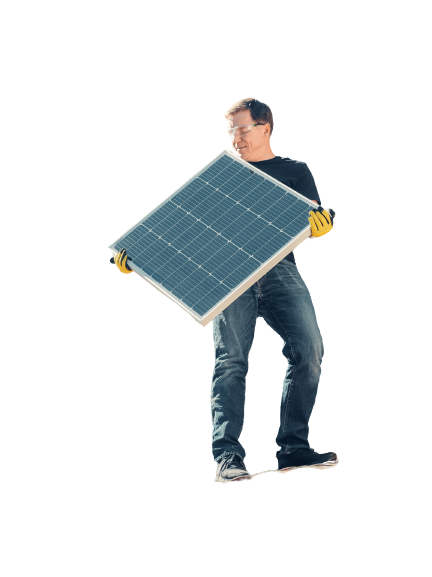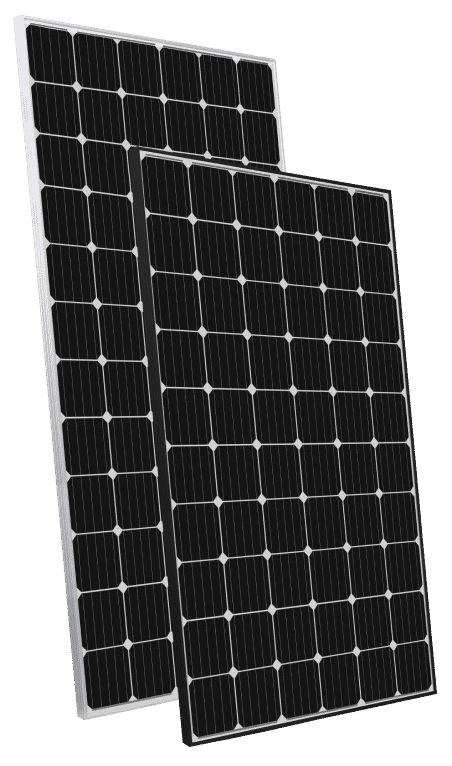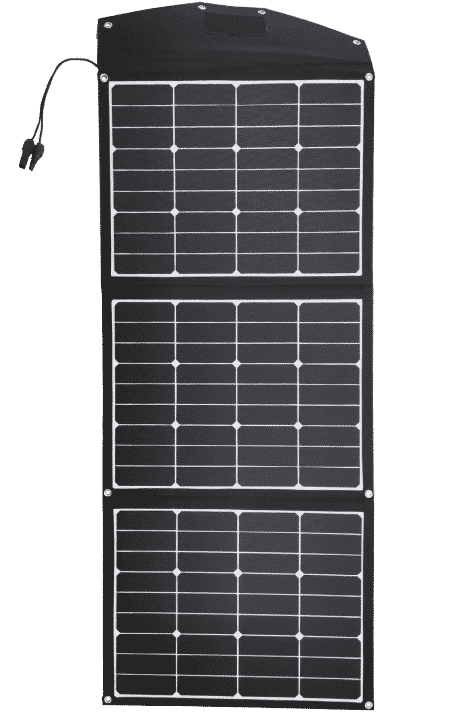Solar Electrician

Scroll down
Nevada Solar Group Company
Nevada Solar Group As the solar power industry takes off, roofs across the country are changing their appearance. According to the Solar Energy Industries Association, solar installations have increased at a 60 percent annual rate since 2006. Solar is becoming an alternative source of energy for mainstream consumers as the efficiency and cost of solar panels goes down.
Photons pass through silicon-based crystals to create solar panels. They also strike exotic elements such as gallium arsenide and cadmium telluride. Thin-film cells are joined together to produce higher electrical outputs. Even at peak power, each cell of the panel may only produce half a volt of electricity.
This is not enough to be bothersome. However, if the cells are connected, they can produce a combined voltage that is sufficient to charge battery banks that can be used to power homes, offices, and businesses.
The wattage produced by the panels can be sufficient to power an entire home or office. Any excess is simply fed back into the electric power grid.
A sun angle of 90 degrees is the best for maximum efficiency. This may mean that panels need to be mounted at different angles or on tracking systems to track the sun throughout the day.
Electrical Workers
There are many jobs for electricians with solar expertise. They can work in residential, commercial, or other sectors. Based on job requirements and local codes, tasks may include: Connecting solar panels, inverters, and other high-voltage devices to the building’s electricity supply, and planning layout and installation PV-related electrical wiring equipment and fixtures.
Registered apprenticeships combine classroom and worksite instruction to train electricians. Advancement to Journey-Level requires 3-5 year experience and passing an exam.
Solar expertise requires more experience and training. Master electricians require 7 years of experience, or a B.S. and an exam.
Nevada Solar Group power technicians design, install and maintain solar panels on commercial and residential sites across the country. They are often responsible for safely erecting frames that hold the panels and wiring them to the main electrical grid.
Solar photovoltaic installers might also need to install electrical systems that tilt the solar panels to track the sun throughout the day. This requires not only mechanical skills to install motors or gimbals on the panels array but also the ability to calculate the sun angle at different times of the day and year.
Solar panel installation that takes into consideration the type of solar power and terrain can make calculations quite complicated. For example, trees can shade cells in certain seasons and affect the optimal positioning of panels in summer and winter.
Many solar electricians work on rooftops, solar panel installation in areas that are relatively clear. Solar electricians who work at heights are trained in high-angle rescue techniques and restraints. Safety is paramount. To access high-altitude arrays they may use ladders or lifts or bucket trucks when installing electrical equipment.
Nevada Solar Group, install large-scale panel arrays across open terrain. Access to panels is much easier than with other installations. However, large amounts of power generated at these installations require different wiring techniques and they use transformers to adjust the voltage to the correct level for the electrical grid it will be injected into.
How to become a solar electrician
A solar photovoltaic installation license is not required. However, this type of work is a great way to start your journey towards becoming a solar service electrician. It will help you understand how the various components of a solar electric system interact.
- License for Electrician in State or Jurisdiction – Solar electricians are capable of diagnosing and troubleshooting operational issues, performing complicated wiring installations, installing system monitoring software, and bringing solar electric systems online. They would be subject to the same licensing laws in each state. Any non-residential wiring work must be done under separate licenses in states or other jurisdictions. This includes those who are employed in power generating stations or substations that install and maintain the electrical equipment connecting a solar farm to an electrical grid, or those who use industrial generators, inverters or transformers, or any other high-voltage work.
- Associate Degree Programs – A few community colleges now offer associate’s degrees for solar energy technology. These degrees can be used as a quick way to get into entry-level jobs at solar installation companies. An associate’s degree is more desirable for new job applicants. They may also be able to earn supervisory positions with greater ease as they gain experience.
- Apprenticeship – You can become a solar electrician by getting a certificate or an associate’s degree from a community college. Then, you will gain relevant work experience through an apprenticeship. As with any type of electrician, it requires that license candidates are hired as apprentices and work for several years under the guidance of more experienced solar electricians. Candidates can usually test to become qualified journeymen after two to four years of work as apprentices. At that point, they are allowed to work independently. These electricians could be eligible for the master electrician license after working as a journeyman for 2 to 3 years.
- Professional Certification – A professional certification is voluntary and should not be confused or equated with an electrician license. This is a legal requirement that is enforced by the state or local government. Employers may require job applicants to have a professional certification in order to ensure they are proficient in solar applications.
As a team, you will install residential solar panels in a safe and efficient way. The experience of the Electrician will be a valuable asset in helping us to develop a culture that values safety, responsibility, appreciation, quality service, and sets the industry standard in solar installation.

Responsibilities
- Repairs, installs, and maintains electrical wiring systems and fixtures in buildings
- Installs conduits to house cables and electrical wires.
- Make sure that piping conforms to codes of electrical
- Circuit breakers and electrical hardware installations, and wiring connection.
- Electrical system connection with power lines to supply electricity to the building
- To ensure that electrical systems are properly installed and operate, it is important to test them.
- To determine if repairs are necessary, inspect the electrical system.
- As needed, replace conduit and wiring
- As needed, replace circuit breakers
- Other duties as required
Physical requirements
- To be able to see color and recognize color-coded wiring, you must be able to.
- Capability to climb ladders, withstand heights, and stand on roofs
- Long periods of standing, kneeling, or bending for prolonged periods.
- You must be physically able to pull wires through conduits
- You must be able lift 50 pounds at once
- Ability to work in any weather or climate
- Ability to work in tight spaces such as attics


Key Competencies
- Knowledge of the PV solar industry is a must or a willingness to learn.
- Solid technical knowledge
- You have strong project management skills and the ability to meet deadlines (budget and time)
- Leadership and supervisory skills are essential
- Self-motivated, with excellent time management skills and the ability to prioritize your work
- Customer service is the main focus
- Great initiative and attention to detail
- Excellent communication skills both verbal and written
- Confidentiality and trustworthiness in handling confidential information
- Professional appearance and a smart manner
- Passionate about the environment, solar energy and sustainability
Salary and job prospects for solar electricians
Although solar panels can be installed anywhere in the country, they are more popular in states that have high levels of sunshine and lower latitudes. High concentrations of solar electricity jobs are found in California and the southwest. Installers often travel to large projects outside their home area.
The starting salaries offered by employers in the most important job markets across the United States will give you an idea of the potential earnings for solar electricians once they start their career. These figures were taken from August 2016 job advertisements. These figures are only for illustration purposes and do not guarantee hourly wages. ):
- North Carolina Journeyman Solar Electrician – $20 an Hour
- Solar Edge Electrician California – $20/hour
- Field Services Technician for a Massachusetts solar installation company – $25/hour
- California Certified Journeyman Electrician – $30/hour
- Solar electricians are generally better-paid than the other members of the crew.
Apprentices can earn anywhere from 30 to 60 percent of the full-time salary of a fully qualified solar electrician.

The US Department of Labor Bureau of Labor Statistics predicts that there will be a 24% increase in the number of jobs for solar technicians in the United States over the next ten years. This is largely due to federal and state tax credits designed to encourage individuals and businesses to adopt solar energy.
Why should you become a solar installer at Nevada Solar Group? You can make a lot of money and have skills that can be transferred to other areas of work. You enjoy the fresh air and work outside.
Training: In order to become an electrician in Nevada Solar Group licensed by the state, you will need to complete a few years’ worth of training and coursework. Some programs allow you to earn money while working as an apprentice. This means that you don’t usually have to pay any college debt once you get your license.
Overview: This program teaches you how to connect, test and maintain electrical systems in a variety of settings, including residential, commercial, industrial, process control, security and communications.
Nevada Solar Group is committed to diversity at work. All qualified applicants will be considered for employment regardless of race, color, religion or sexual orientation.
After being offered this position, applicants must pass a drug screening. Refusal or refusal to take part in testing may result in the disqualification from further consideration for employment.

Contact Us For A Free Solar Quote
First name is required
Last name is required
Email is required
Phone is required
Please enter a valid property address
Property address is required
Schedule Your Appointment
ATTACH YOUR UTILITY BILL (optional)
Some information is missing or is incorrect, please fix the issues above and resubmit.
Thank you for your request
Your appointment has been added to our calendar.
The consultation will be online or over the phone. Please prepare a copy of your electric bill or energy usage history for your consultant to give you the most accurate proposal.